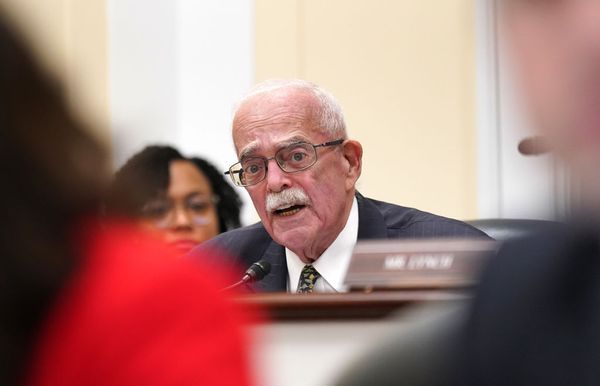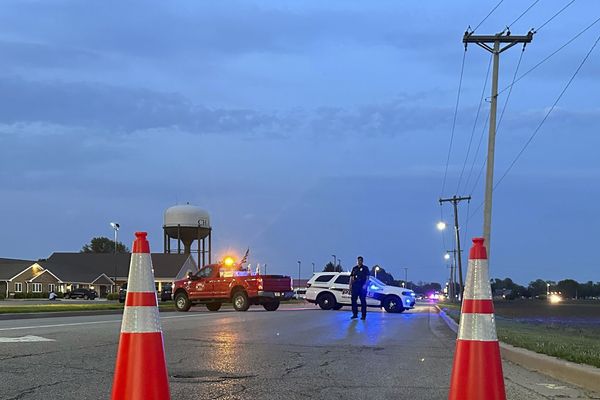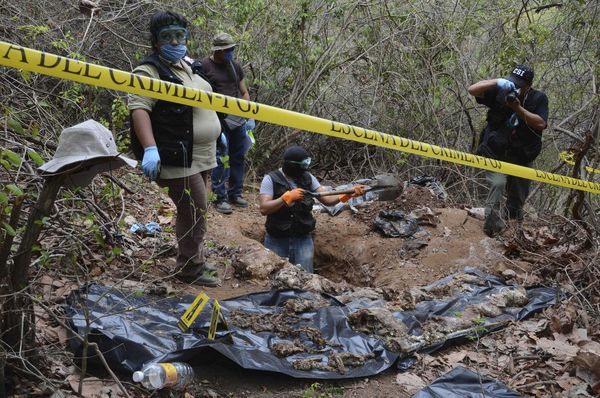MINNEAPOLIS — A Feeding Our Future employee on Thursday admitted to taking more than $1.3 million in bribes to help other co-conspirators defraud a federal child nutrition program as part of the nation's largest pandemic fraud case.
Hadith Yusuf Ahmed, 33, and two other defendants entered the first guilty pleas in a Minneapolis federal courtroom Thursday in an ongoing federal case that has so far yielded nearly 50 arrests with more indictments expected.
Ahmed, who was responsible for monitoring sponsor sites for Feeding Our Future, is the first person who worked for the nonprofit to testify about the organization's role atop the $250 million conspiracy to steal money meant to feed needy children. He admitted that it operated a "pay to play" system that required sites to kick back a portion of the federal money they received in exchange for Feeding Our Future's sponsorship and help submitting fraudulent claims.
Aimee Bock, founder and executive director of Feeding Our Future, is among those indicted in the case. Bock has denied wrongdoing and pleaded not guilty at her first appearance on the charges last month.
Ahmed, like many others charged in the case, also set up his own business at which he falsely claimed to serve up to 2,000 meals a day at a location in Eden Prairie — pocketing another $1.1 million in federal reimbursement based on the fraud.
"No, your honor, I don't know the exact number of the kids that we served but it was nowhere near close to 2,000, your honor," Ahmed told U.S. District Judge Nancy Brasel as he pleaded guilty to wire fraud conspiracy.
Ahmed admitted to creating an LLC to disguise the kickback money he received as "consultant fees." He also said he started a second business, Southwest Metro Youth, as a shell company he enrolled in the federal food program under Feeding Our Future's sponsorship.
Ahmed did not respond to questions from reporters as he walked away from the federal building in Minneapolis. His attorney, Richard Dansoh, added: "I think we said enough."
Ahmed's sentencing guideline range is between 46 to 57 months in prison, with enhancements for misrepresenting that he acted on behalf of a charitable or education organization and for using "sophisticated" means in the scheme. He agreed to forfeit more than half a million dollars seized from bank accounts in his name during the investigation.
Bekam Addissu Merdassa and Hanna Marakegn, both 40, pleaded guilty to the same charges earlier Thursday. It was the first court appearances for all three since they were charged last month.
Marakegn, who owned Brava Café in Minneapolis, admitted that her business received $7.1 million in federal child nutrition program money while under the sponsorship of Feeding Our Future, after falsely claiming to have served more than 4,000 meals per day during the pandemic.
"In reality, you had neither the ability to prepare or serve that many meals a day, nor that many children who you could actually feed," Assistant U.S. Attorney Joseph Thompson said during Marakegn's plea hearing.
"Yes," Marakegn replied.
Marakegn admitted to fabricating invoices to document the purchase of food and paid $150,000 in kickbacks to an unnamed Feeding Our Future employee in exchange for sponsorship.
She testified that Feeding Our Future terminated Brava Café's contract and stopped submitting its claims for reimbursement once Marakegn refused to pay additional kickbacks.
Both Marakegn and Merdassa, along with their attorneys, declined to comment as they exited Brasel's courtroom. The judge said she would schedule sentencing for each at a later date and allowed all three defendants to remain free until then. Terms of any cooperation with the government's ongoing probe were not disclosed in any of the hearings.
Marakegn's plea agreement calculates her expected sentence to be between 37 and 46 months in prison. She must also forfeit a Medina property that federal prosecutors tied to the fraud scheme. Merdassa could be sentenced to between 24 and 30 months based on his calculated sentencing guidelines. But Brasel reminded all three defendants Thursday that she is not bound by the calculations outlined in their plea agreements.
During his plea hearing, Merdassa admitted to using his Youth Inventors Lab as a "shell company" to receive federal child nutrition program money for meals the company did not actually serve to needy children. Merdassa said he submitted fake invoices that falsely claimed to show purchases of food from a vendor — S & S Catering — but never received food from that vendor.
S & S Catering is also implicated in the criminal case and the people identified as Merdassa's co-conspirators – Abdul Ali and Yusuf Ali – have pleaded not guilty to charges filed against them.
Merdassa admitted that his company, under the sponsorship of Feeding Our Future, falsely claimed to have served 1.3 million meals to children. As a result, it received more than $3 million in fraudulent reimbursements from Feeding Our Future between December 2020 and June 2021.
All of the alleged fraud that took place at Feeding Our Future and its partners occurred after the federal government relaxed rules at the start of the COVID-19 pandemic, allowing state regulators to suspend all on-site monitoring of providers. It also suspended a requirement that children eat their meals on site.
The three who pleaded guilty Thursday were the only people in the case to be charged via felony information — a process through which defendants agree to forgo grand jury proceedings, often signaling an imminent guilty plea. The plea agreements for all three include hefty restitution amounts to pay back to the government: $5.1 million for Marakegn, $1.3 million for Ahmed and $343,086 for Merdassa.
U.S. Attorney Andrew Luger has described the indictments and three felony information charges filed last month as the first wave in an ongoing probe expected to yield additional charges.







